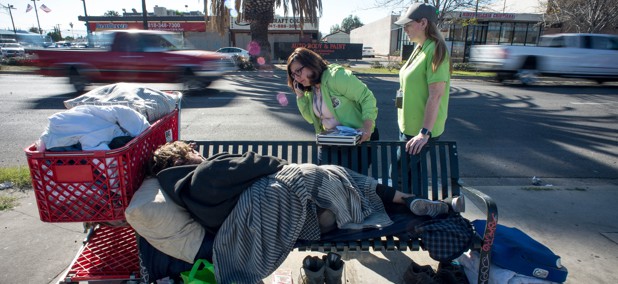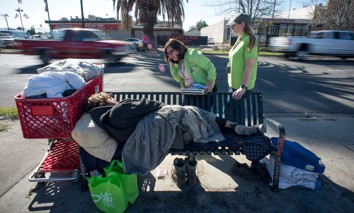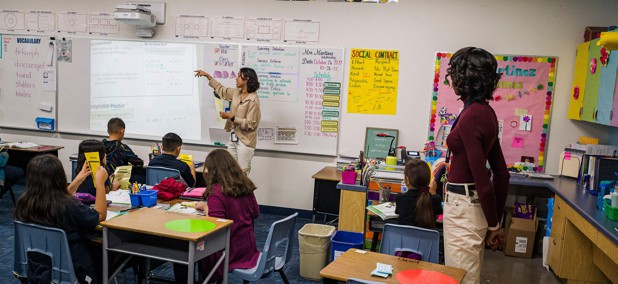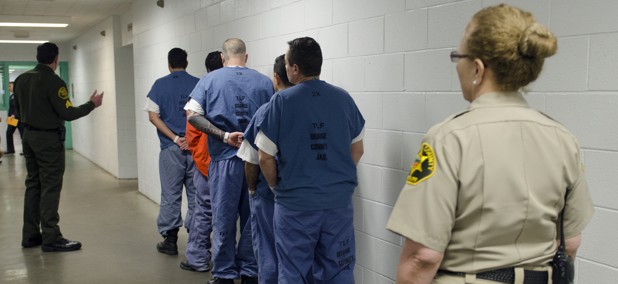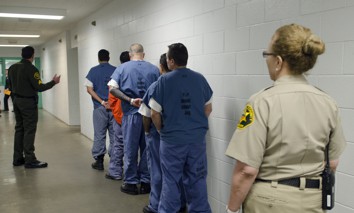Author Archive
Katherine Barrett & Richard Greene

Over the course of nearly 30 years, Katherine Barrett and Richard Greene, principals of Barrett and Greene, Inc. have done much-praised analysis, research and writing about state and local governments. Described by Peter Harkness, founder of Governing Magazine as "by far the most experienced journalists in the country covering public performance," they pioneered "grading the cities, counties and states" in management. Related to that work, they founded the Government Performance Project.
They are columnists and senior advisors at Route Fifty, special project consultants to the Volcker Alliance, senior advisors at the Government Finance Research Center at the University of Illinois in Chicago and fellows in the National Academy of Public Administration. Greene has been named chair of The Center for Accountability and Performance at the American Society for Public Administration (ASPA). In addition, they are visiting fellows at the IBM Center for the Business of Government and consultants to the National Association of State Personnel Executives.
Management
How collaboration is changing North Carolina, one project at a time
States that want to tap universities and philanthropies to find solutions to policy challenges using the best research, evidence and data should look at how one state mastered the communications and logistics essential for effective partnerships.
- By Katherine Barrett & Richard Greene
Management
Emergency alert: States confront EMS shortages
Minnesota declared an “EMS emergency” last month, but it’s far from alone. An outdated approach to funding the service is largely to blame, says experts.
- By Katherine Barrett & Richard Greene
Management
Trust in government, and opportunities to rebuild it
Confidence in state and local government may have been waning in recent years, but there are ways communities can help to bolster their resident’s faith in them.
- By Katherine Barrett & Richard Greene
Management
How trusted are state and local governments?
Confidence in lower levels of government may be better than in the federal government, but it’s still not nearly good enough. And that stands in the way of state and local leaders’ ability to get things done.
- By Katherine Barrett & Richard Greene
Workforce
The future of government jobs: Post generative AI
In the wake of dramatic technological advances, the workplace of the future will be far different than was envisioned a year ago.
- By Katherine Barrett & Richard Greene
Management
Mental health funding is fast becoming “the bipartisan issue of our time”
States from California to Texas are increasingly investing in mental health as a recognition takes hold that the status quo isn’t working.
- By Katherine Barrett & Richard Greene
Workforce
Data literacy: the drive to educate the public sector workforce
As data-based decision-making becomes ever more important, data academies begin to blossom in local government.
- By Katherine Barrett & Richard Greene
Workforce
Apprenticeship programs are growing as the public sector faces workforce shortages
Registered apprenticeships, infrequently used by state and local governments in the past, are gaining the attention of staff-starved agencies.
- By Katherine Barrett & Richard Greene
Management
Access to public records is 'deteriorating terribly'
In a time when trust in state and local government is under siege, public access to information is particularly vital.
- By Katherine Barrett & Richard Greene
Workforce
Understanding Gen Z in the public sector
Managers can benefit by better engaging and communicating with the newest generation of workers in cities, counties and states.
- By Katherine Barrett & Richard Greene
Finance
Are tax incentives boons or boondoggles?
Though there’s lots of evidence that the economic development tool may not be effective, it is still in wide use. Fortunately, there are ways to control the potential waste of taxpayer dollars.
- By Katherine Barrett & Richard Greene
Workforce
How improvements in onboarding can lower employee turnover
One of the greatest challenges confronting state and local governments is a badly understaffed workforce. Here’s one technological and personal way to confront that problem.
- By Katherine Barrett & Richard Greene
Finance
How one city is looking to future-proof its budgeting process
Nationwide, cities are attempting to improve their budgeting. But none appear to be taking more dramatic steps than fast-growing Fort Worth, Texas.
- By Katherine Barrett & Richard Greene
Management
‘IGNITE’ing an educational fire in U.S. jails
An initiative launched in a Michigan county jail has been embraced as a national model for reducing jail violence and inmate recidivism.
- By Katherine Barrett & Richard Greene
Cybersecurity
An underused approach to fighting cyberattacks
The Multi-State Information Sharing and Analysis Center offers free services to help localities with cybersecurity. Why aren’t more governments using them?
- By Katherine Barrett & Richard Greene
Workforce
Solving the problem of understaffed jails and prisons
State and local governments are working to attract and retain corrections workers. But it’s not easy, and the task is complicated by high burnout rates due to understaffing.
- By Katherine Barrett & Richard Greene
Workforce
A Model for Reducing Female Incarceration and Breaking the Generational Cycle
A program in Tulsa, Oklahoma, has been changing lives for addicted women and their children. Here’s how it works.
- By Katherine Barrett & Richard Greene
Management
Will States Force Localities to Build Affordable Housing?
The need for more housing in America is undeniable. But with localities unlikely to change zoning laws to create more, states are stepping in.
- By Katherine Barrett & Richard Greene
Management
How One State Is Confronting PTSD Among Police Officers
Concerns abound about post-traumatic stress disorder in law enforcement. Minnesota, where the problem is acute, has ideas about how to curb the costs and keep more police working in the field.
- By Katherine Barrett & Richard Greene
Workforce
Can Performance Pay Help States and Cities Hang onto the Best and Brightest?
After years in which compensation tied to performance was considered a “failed experiment,” workforce pressures are bringing it back to the table again.
- By Katherine Barrett & Richard Greene










